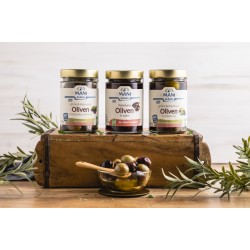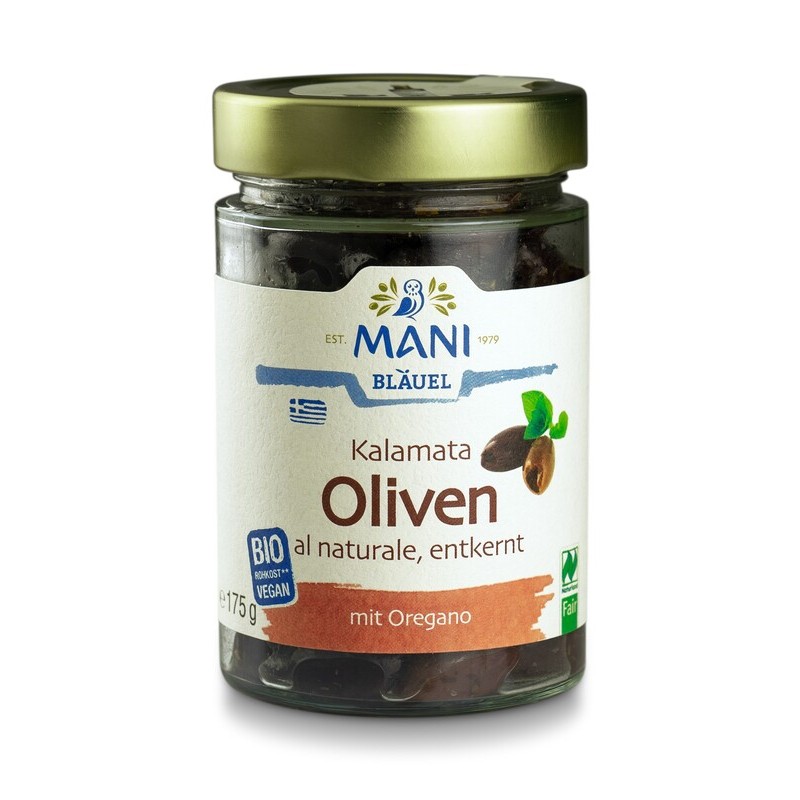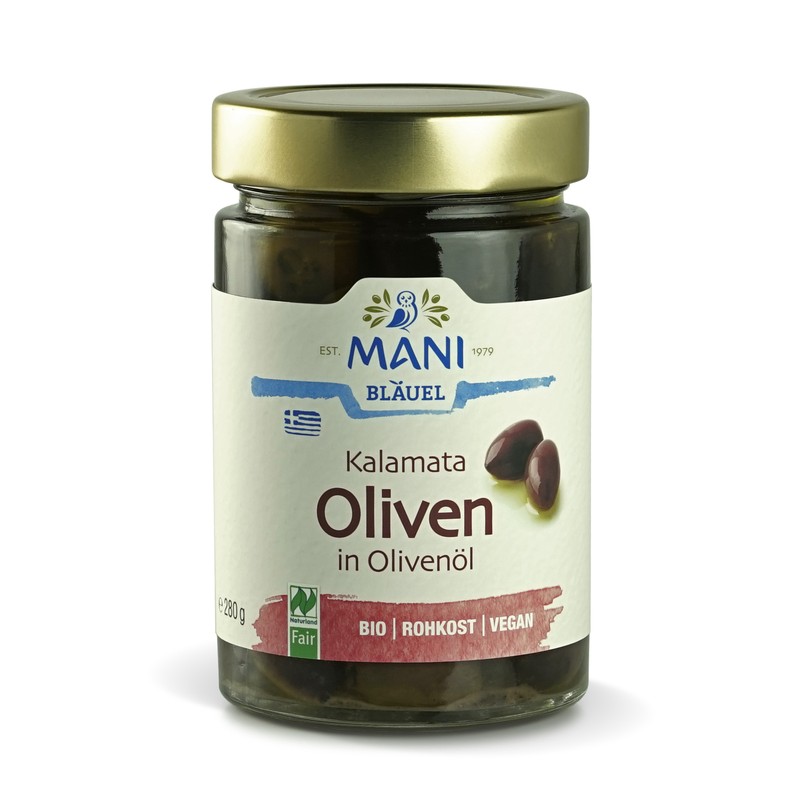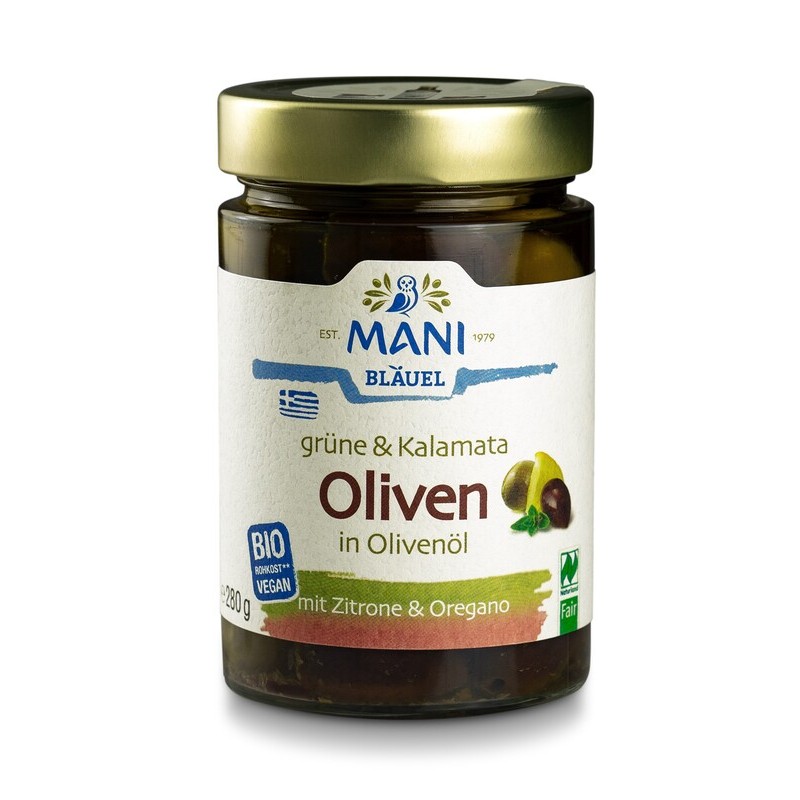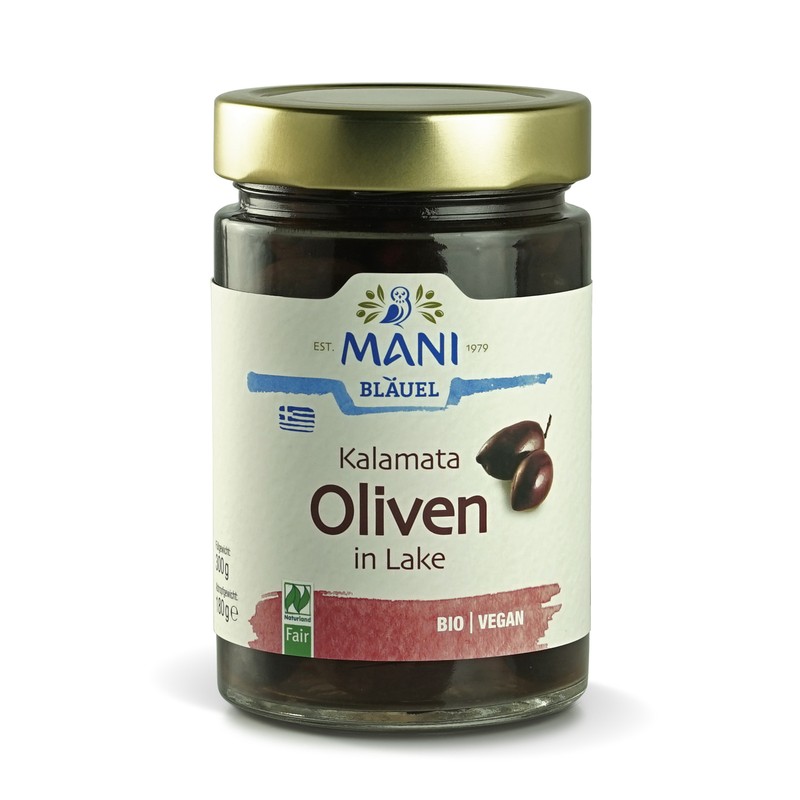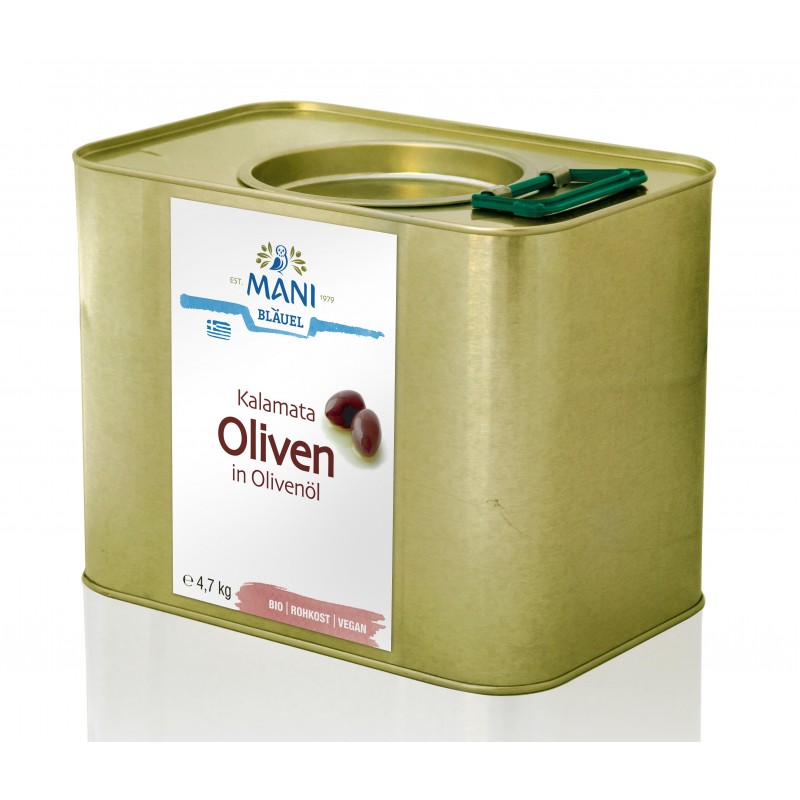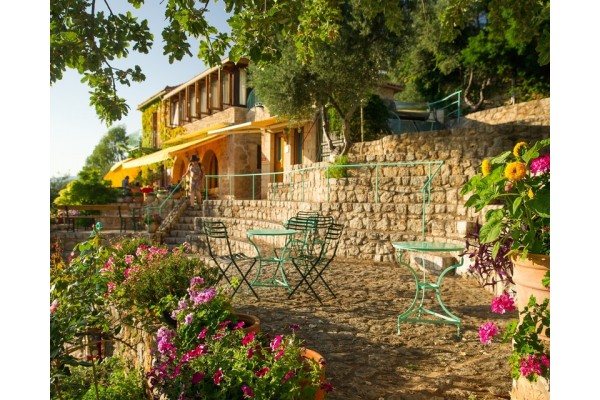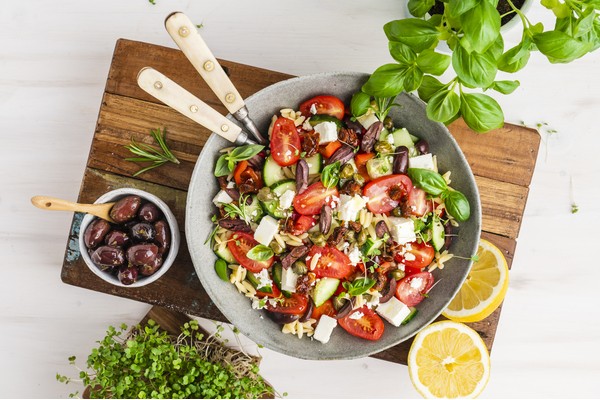Buy Greek olives: In organic quality at MANI
When buying Greek olives, there are a few aspects to consider. Olives from sustainable origin, of natural quality and gentle processing taste with a particularly good feeling. And MANI combines all these criteria in one olive glass! The successful family business was founded in the 80s and has accompanied over 300 olive producers on their way to organic farming. To this day, MANI practices a sustainable and fair corporate philosophy for everyone involved : from the olive tree to the olive farmers and olive connoisseurs!
The MANI olives thrive in different regions of Greece, above all on the Peloponnese . They are obtained and fermented in the traditional way - not pasteurized. In the interests of the environment and healthy enjoyment, the Greek MANI table olives are mostly harvested by hand and gently debittered and preserved. This way the olives stay free of artificial additives and preserve their valuable nutrients .
All MANI table olives are organic, vegan and raw food quality ! The award-winning Kalamata and Amfissa green table olives are available in different styles: "al naturale", in olive oil or in brine. Thanks to their natural authenticity, MANI olives taste like a summer holiday in Greece!
Buy Kalamata olives - the premier class
The brownish-purple Kalamata olives enhance salads and mezze plates both visually and in terms of taste. With their juicy, mild aroma and their natural dark color, they stand out in the world of olives. But where does the skin color come from? Are Kalamata olives dyed black? No, the color comes with maturity: the Kalamata olive is harvested comparatively late in the year, when the once-green olive has ripened.
After harvesting, the Kalamata olives must be debittered. Industrially, this can be done quickly with the help of a special sodium hydroxide solution and subsequent pasteurization. However, MANI refrains from using this quick method - and for good reason. During pasteurization, the olives lose most of their natural nutrients and vitamins. At MANI, the olives are placed in a water-sea salt brine for four to eight months as part of the fermentation process and in this way are naturally debittered and preserved. For Kalamata olives with real raw food quality and fine taste!
Greek Kalamata olives are ideal for serving as table olives and they are also often processed into so-called mezes: appetizers in the form of pastes, and served in combination with fresh bread.
Green olives at MANI - Greek green gold
The green Konservolia olives are also known under the name Amfissa. MANI Konservolia olives are also naturally debittered, giving them their wonderfully aromatic taste. Characteristic of the green drupes are :
- the extremely firm flesh and
- the thick skin.
The ideal cultivation conditions, the careful processing and many years of experience in organic olive cultivation give the MANI Konservolia Olive a special aroma.
In Greece, green olives are used in a wide variety of kitchen situations - from the salad plate to the oven : in chopped form, they add the perfect flavor to home-baked plucked bread, dried they taste good on the mixed starter plate and they should certainly not be missing in the Greek salad.
Tip : In the mix with Kalamata olives the green MANI olives run spicy top form.
Different sizes and variants
MANI sells Greek olives in different product sizes – from 150 g to 4.7 kg .
At MANI, the olives are pickled in different ways:
- In sea salt brine
- In pure MANI olive oil
- In Olive Oil & Oregano Al Naturale
- In olive oil with lemon and oregano
- In olive oil with lemon oil, coriander seeds & pink pepper
- In olive oil with coriander seeds & pink pepper al naturale
- In olive oil with chili & herbs al naturale
The olives in jars or canisters can be stored in a protected place and easily resealed .
FAQs:
Nutritional facts of olives - why are they so healthy?
Greek olives are packed with an extremely healthy base of nutrients. They usually contain sodium, calcium, phosphorus and iron as well as vitamin A and folic acid . The more nutritional value the olive has in itself, the healthier it is to enjoy.
Which type of olive is the best?
There are probably at least as many answers to the question of the best olive as there are olive varieties in the world. The tastes are different and so are the olives. How are you supposed to compare one to the other in a fair way? The Greek Kalamata olive is considered to be of particularly high quality, nutritional content and taste .
Are black olives always colored?
No, olives can also be naturally dark-skinned. The dark purple Kalamata olives, for example, sometimes appear black without being colored. The longer olives mature on the tree, the darker their skin becomes.









